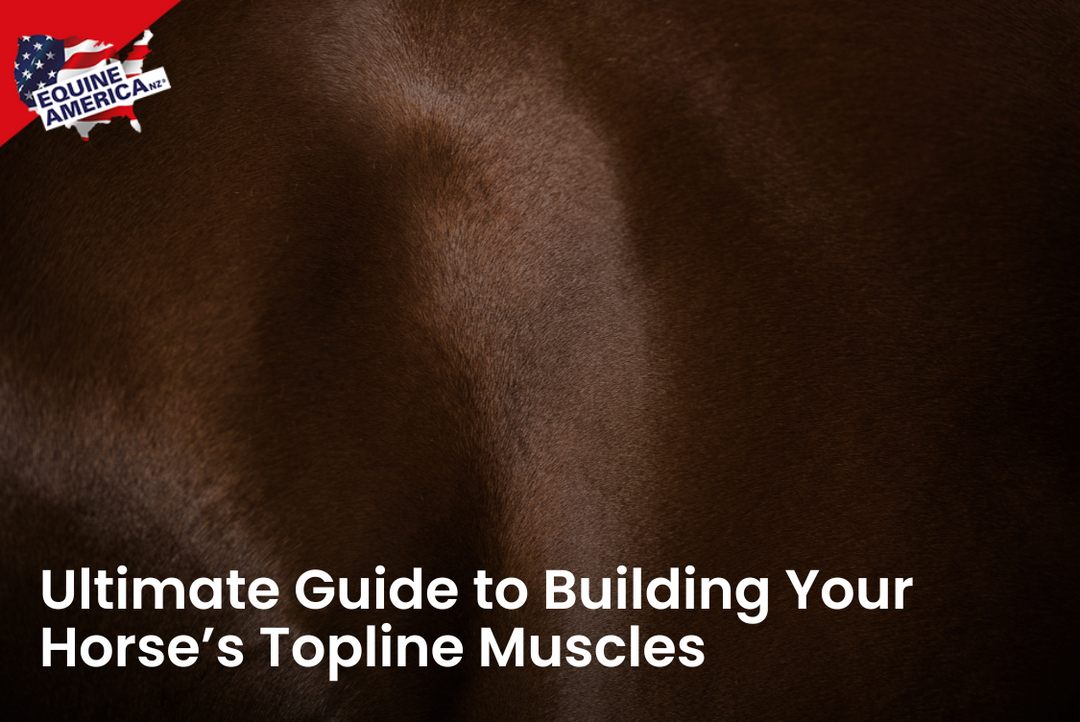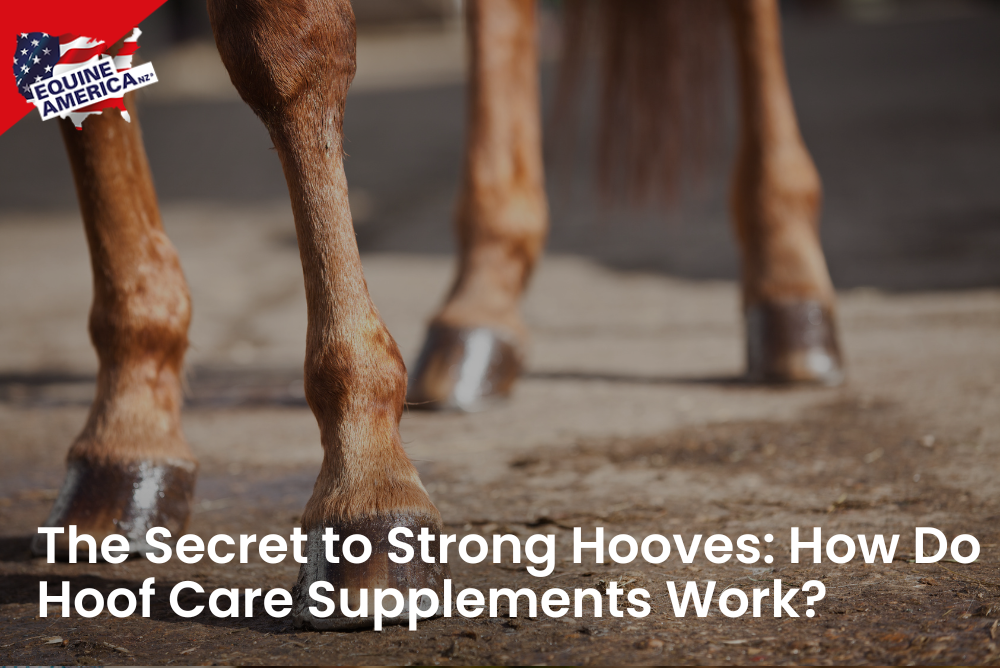
Caring for your horse’s hooves is a fundamental aspect of equine health management. Attentive and informed hoof care not only boosts your horse’s overall health but also maximises its performance, whether trotting on a peaceful trail or competing in high-energy sports.
Proper hoof care ensures that a horse can move comfortably and safely, averting the common limb and hoof disorders that can arise from neglect.
Understanding the Anatomy of a Horse’s Hoof
To effectively maintain and care for horse hooves, a solid understanding of their anatomy is essential. Each hoof is a complex structure that includes several key components: the wall, sole, frog, and digital cushion, supported by internal bones and connective tissues.
The wall is the hard outer shell of the hoof, the sole is the underside, and the frog is the V-shaped structure that aids in shock absorption and circulation. Proper care of each part is critical to maintaining the hoof’s integrity and the horse’s mobility.
Recognising Signs of Hoof Problems
Early detection of hoof problems is crucial in preventing more serious issues. Some common signs include cracks in the hoof wall, unusual wearing, sensitivity when walking, or outright lameness.
Bad odours or a black discharge can often signal an infection, such as thrush or canker. These symptoms require prompt action to alleviate pain and restore hoof health.
The Importance of Regular Hoof Trimming
Regular hoof trimming is vital to maintaining the hoof's proper shape and balance, which helps prevent undue stress and structural damage. Typically, a horse’s hooves should be trimmed every six to eight weeks, though this can vary based on the horse’s environment and activities.
Regular trimming helps to correct any imbalances that could lead to poor posture or gait, and supports overall limb health.
Choosing the Right Farrier
Selecting a qualified farrier is critical to effective hoof care. A skilled farrier not only trims and balances hooves but also assesses them for potential health issues that may need attention.
It’s important to choose a farrier who is experienced, well-recommended, and ideally certified by a recognized farriery association. Your farrier should also communicate well and be willing to discuss your horse’s hoof health comprehensively.
Nutrition’s Role in Hoof Health
Proper nutrition is a cornerstone of healthy hooves. Nutrients such as biotin, zinc, copper, and omega fatty acids are essential for strong, resilient hooves. These elements help in keratin development which forms the hoof wall.
Ensuring your horse has a balanced diet rich in these nutrients can help to prevent common hoof problems and promote overall health. An equine nutritionist can offer tailored advice based on your horse's specific needs and conditions.
Proper Footing for Horses
The type of ground your horse walks on can significantly impact hoof health. Surfaces that are too hard, uneven, or excessively soft can cause discomfort or injuries.
Proper footing in paddocks and arenas, such as quality grass turf or specially designed equestrian surfaces, helps to minimise the risk of hoof damage and supports healthy movement.
Daily Hoof Care and Cleaning
Daily hoof care involves cleaning out each hoof with a hoof pick to remove rocks, dirt, and debris that could lead to irritation or infection. This routine provides an excellent opportunity to inspect the hooves for any signs of problems, such as cracks or punctures.
Consistent daily care not only keeps common hoof issues at bay but also builds a routine that both the horse and handler can rely on for maintaining overall hoof health.
Dealing with Common Hoof Diseases
Awareness and prompt treatment of common hoof diseases like thrush, abscesses, and laminitis are key to effective hoof care. Each condition requires a specific treatment plan, often involving both topical treatments and systemic intervention.
Regular check-ups from your veterinarian can help catch these issues before they become severe, ensuring a quicker and more effective treatment process.
The Role of Hoof Supplements
While not all horses need hoof supplements, they can be beneficial for those with recurring hoof problems or those lacking certain nutrients in their diet. Hoof supplements typically contain biotin, amino acids, zinc, and copper, which support hoof hardness and growth.
It’s important to consult with a vet before starting any supplement to ensure it’s necessary and appropriate for your horse’s specific health profile.
Seasonal Hoof Care Considerations
Seasonal changes can affect hoof health. For instance, wet conditions are conducive to bacterial and fungal infections, while dry conditions can lead to cracked hooves. Adjusting hoof care practices to suit the changing seasons is vital for maintaining healthy hooves year-round.
This may include using hoof moisturisers in dry conditions or ensuring clean, dry bedding in wet conditions.
Final Thoughts: Holistic Hoof Care
Effective hoof care requires a holistic approach that combines regular maintenance, proper nutrition, and preventive health practices.
Embracing comprehensive hoof care will not only help to keep your horse’s hooves in excellent condition but also contribute significantly to its overall health and happiness. The dedication to maintaining robust hoof care practices ensures that your horse can lead a healthy, active life.
If you’re looking for high-quality equine care products for your horse, consider exploring the range offered by us here at Equine America NZ. Our extensive selection of products along with performance-enhancing supplements provide you with suitable options to support your horse’s overall health and performance.
Please give us a call at Equine America NZ today at 0800 440 888 to learn more or leave an enquiry.




